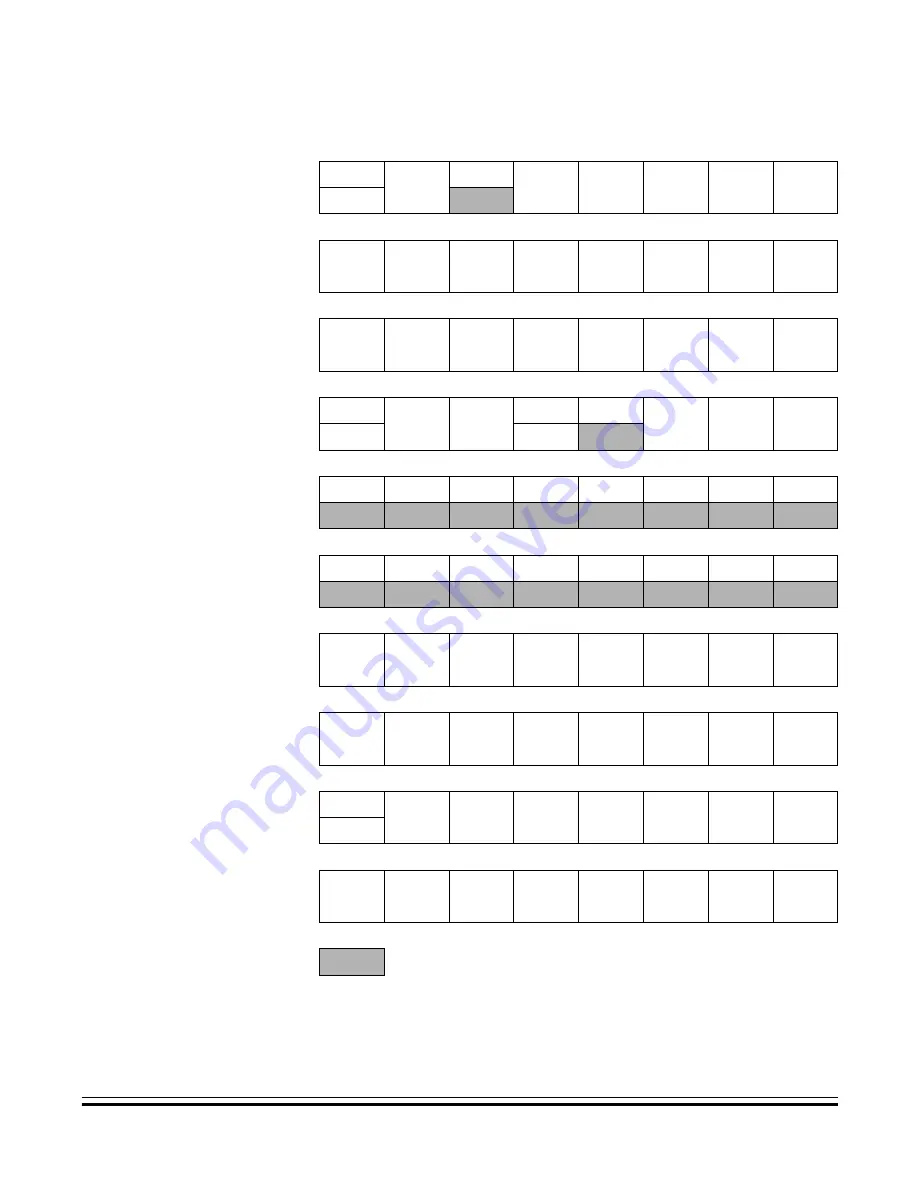
Memory Map
Input/Output (I/O) Section
MC68HC908GP32
•
MC68HC08GP32
—
Rev. 6
Technical Data
MOTOROLA
Memory Map
51
$0028
Timer 1 Channel 1 Status
and Control Register
(T1SC1)
Read:
CH1F
CH1IE
0
MS1A
ELS1B
ELS1A
TOV1
CH1MAX
Write:
0
Reset:
0
0
0
0
0
0
0
0
$0029
Timer 1 Channel 1
Register High
(T1CH1H)
Read:
Bit 15
14
13
12
11
10
9
Bit 8
Write:
Reset:
Indeterminate after reset
$002A
Timer 1 Channel 1
Register Low
(T1CH1L)
Read:
Bit 7
6
5
4
3
2
1
Bit 0
Write:
Reset:
Indeterminate after reset
$002B
Timer 2 Status and Control
Register
(T2SC)
Read:
TOF
TOIE
TSTOP
0
0
PS2
PS1
PS0
Write:
0
TRST
Reset:
0
0
1
0
0
0
0
0
$002C
Timer 2 Counter
Register High
(T2CNTH)
Read:
Bit 15
14
13
12
11
10
9
Bit 8
Write:
Reset:
0
0
0
0
0
0
0
0
$002D
Timer 2 Counter
Register Low
(T2CNTL)
Read:
Bit 7
6
5
4
3
2
1
Bit 0
Write:
Reset:
0
0
0
0
0
0
0
0
$002E
Timer 2 Counter Modulo
Register High
(T2MODH)
Read:
Bit 15
14
13
12
11
10
9
Bit 8
Write:
Reset:
1
1
1
1
1
1
1
1
$002F
Timer 2 Counter Modulo
Register Low
(T2MODL)
Read:
Bit 7
6
5
4
3
2
1
Bit 0
Write:
Reset:
1
1
1
1
1
1
1
1
$0030
Timer 2 Channel 0 Status
and Control Register
(T2SC0)
Read:
CH0F
CH0IE
MS0B
MS0A
ELS0B
ELS0A
TOV0
CH0MAX
Write:
0
Reset:
0
0
0
0
0
0
0
0
$0031
Timer 2 Channel 0
Register High
(T2CH0H)
Read:
Bit 15
14
13
12
11
10
9
Bit 8
Write:
Reset:
Indeterminate after reset
Addr.
Register Name
Bit 7
6
5
4
3
2
1
Bit 0
= Unimplemented
R = Reserved
U = Unaffected
Figure 2-2. Control, Status, and Data Registers (Sheet 5 of 8)
F
re
e
sc
a
le
S
e
m
ic
o
n
d
u
c
to
r,
I
Freescale Semiconductor, Inc.
For More Information On This Product,
Go to: www.freescale.com
n
c
.
..
















































